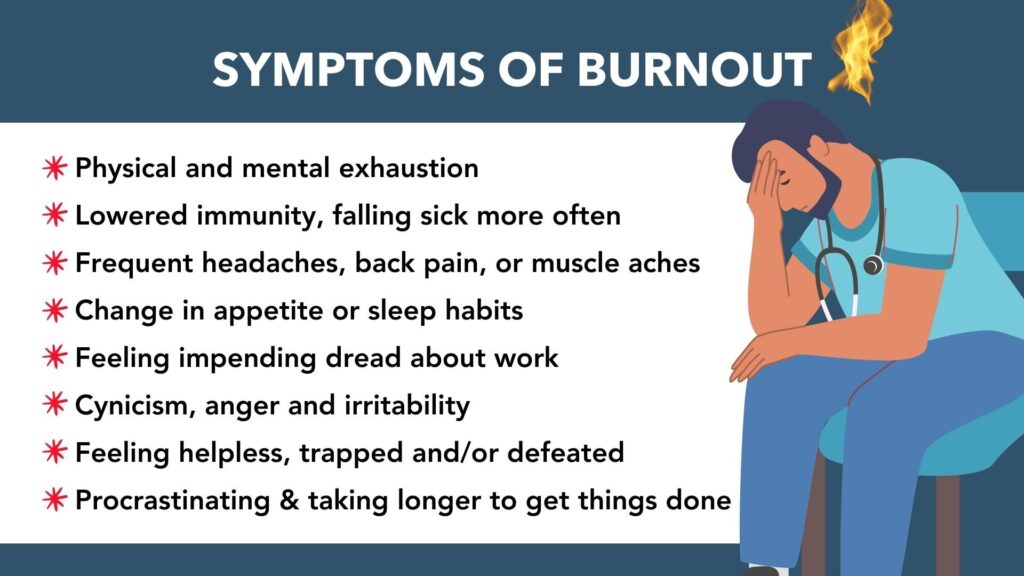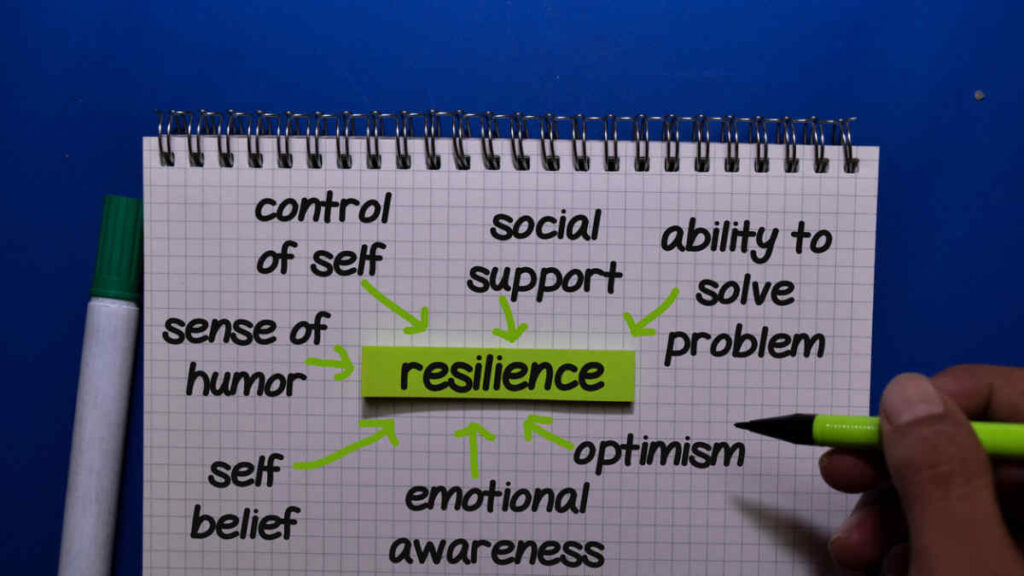If you’re working in healthcare in 2024, there is a good chance that you’re burned out. Healthcare worker burnout is a growing concern in today’s society, particularly with the ongoing COVID-19 pandemic. Burnout has many definitions but at its core has three key symptoms: physical and emotional exhaustion, depersonalization and cynicism, and a lack of sense of personal achievement. In laymans terms: you’re exhausted, you’re not as passionate as you once were, and you have trouble feeling like your work is actually making a difference.
Because of the difficulties our healthcare system faces, which were only exacerbated by the pandemic, it’s no surprise that burnout is at an all-time high. Physician burnout and overall levels of burnout in healthcare are both at 50%, and studies report that depression, anxiety, insomnia, and stress have all increased amongst healthcare workers since the pandemic.
We work in an incredibly demanding field – we’re expected to work long hours, work in high-pressure, literal life or death situations, and provide emotional support to our patients and their families. While this can be rewarding and energizing, without mindful attention to keeping our cup full, this can quickly become exhausting, leading to burnout.
I am a former hospice physician turned burnout coach, and have coached over 1000 healthcare workers through burnout. I get it – because I’ve been there. Working in healthcare can be stressful, emotionally exhausting, and incredibly taxing – and it can also be the most rewarding career that there is.
I’m writing today, firstly with compassion, and secondly with actions you and your organization can take to preserve the career you’ve worked so hard for. If you’re in the 50% that are burned out, I have faith that you can regain the fulfillment and happiness that you’ve found in keeping our nation healthy.
In this post, we’re going to dive deeper into the symptoms of burnout, talk about strategies to prevent and treat burnout, and then conclude with some additional resources you can access.
Healthcare Burnout Symptoms

Here I will outline the specific symptoms associated with physical and emotional exhaustion, depersonalization, and a lack of personal achievement.
Exhaustion:
- Lack of quality sleep
- Fatigue
- Feeling drained and unable to cope with the demands of work
- Changes in mood
- Irritable, stressed, and cranky
- Not experiencing joy at work or at home
- Increased risk of medical errors
Depersonalization:
- Feeling detached or indifferent with patients
- Cynical or negative towards the healthcare system – feeling helpless
- Not looking forward to work/lack of interest in work
- Feeling “eh” about your career and life
- Loss of interest in activities outside of work
- Procrastinating charts or other aspects of work
Lack of Personal Achievement:

- Experiencing self-doubt or feelings of incompetence
- Feeling inferior to colleagues or other healthcare workers
- Feeling like an “imposter,” or unworthy of what you have accomplished
- Unable to see the good that you are doing
- Wondering if healthcare is the right career for you
- In extreme cases, depression
As you can see, burnout is a miserable state to be in (you may already know so first hand).
Here are some actions you can take to overcome burnout that are within your control. We cannot single handedly fix dysfunctions in the system but we can work to preserve our own wellbeing and maintain the careers we’ve worked so hard to achieve.
Ways to Prevent and Treat Burnout

Put your most important patient first
It is absolutely imperative that we prioritize ourselves and work as hard as we can to pour from a cup that is full. We can’t consistently show up for our patients, our loved ones, and our friends until we consistently show up for ourselves.
The leading symptom of healthcare burnout is physical and emotional exhaustion, and tackling this symptom head on and prioritizing self-care and maintaining a life outside of work is the only way to get our energy back.
For the physicians and healthcare workers that I coach, we call this “mindful selfishness.” This may sound pedantic but we need practice taking care of our most important patient: ourselves.
One of the most important preventative measures you can take is getting enough rest, exercising and eating healthily, taking time to have a social and personal life outside of work, and intentionally prioritizing activities that sustain you. I like Pickleball!
By setting boundaries and being “mindfully selfish,” we can start to put burnout behind us.
Be Mindful

Managing your own mind and stress responses is one of the most powerful tools we have in preventing burnout. By noticing when your mind is flying off the hinge and taking time to collect it, and questioning the often negative and out-of-proportion thoughts that your mind generates, we can attack burnout where the rubber meets the road.
We can’t control most of what happens to us in a given day in medicine, all we can control is how we respond. Mindfulness is proven to be a powerful antidote to stress and can help with burnout prevention immensely.
Be your own biggest cheerleader
Two of the core symptoms of burnout relate to detachment and a lack of personal achievement. When we’re burned out, we stop being able to see the good that we are doing. In order to prevent burnout, we have to intentionally focus and remind ourselves of how meaningful our work is.
The brain has a powerful negativity bias meant to keep us alive, and this is exacerbated by the aforementioned medical mindset. So, it is easy to feel like your work is meaningless. As healers, this couldn’t be further from the truth.
However, our brains and the powerful negativity bias are great at replaying in 1080p any misstep we’ve ever made, and are reluctant to show us our own highlight reel. We can get around this by intentionally reminding ourselves of the good we are doing and the positive impact we have, at work and at home.
Learn to tackle charting stress

The EMR is one of the biggest contributors to workplace stress and burnout and deserves it’s own post. Physicians and healthcare workers can overcome charting stress by accepting that the EMR is an opponent they have to wrestle with. Letting go of all hatred and emotion tied to charting is a huge first step. It is simply a necessary, albeit annoying part of our job. After that, letting go of perfectionism and feeling good enough about good enough helps the healthcare workers that I coach get their charts done. There is no need to get an “A,” get the B minus and move on.
Build a positive work environment
We all know that workplace drama and politics can sap our energy and make our workplace somewhere we dread. By forming strong, real relationships with colleagues and working to build a positive culture despite whatever our organization may lack can be a powerful barrier to burnout.
Seek support
This flies in the face of the medical mindset, which teaches us to keep our guard up and never break the appearance of expertise. Ironically, when we can be open about our shortcomings and what we’re struggling with, the emotion behind these wounds lessens. Talk to colleagues, friends, or a coach about the challenges you are facing and seek help when you need it.
How Organizations Can Support

It is also important for healthcare organizations to recognize the signs of burnout and to provide support for their employees. This could include offering coaching, flexible scheduling, and promoting and encouraging employees taking time off. This can also be giving employees more opportunity for growth and compensating employees competitively.
Encouraging mindfulness practices and providing resources to support them can be a valuable addition to the support offered by healthcare organizations.
Conclusion
Healthcare worker burnout is at an all-time high and there has never been a more difficult time to be in healthcare. Now, more than ever we have to focus on keeping our cups full and on prioritizing our most important patients so we can maintain our careers.




